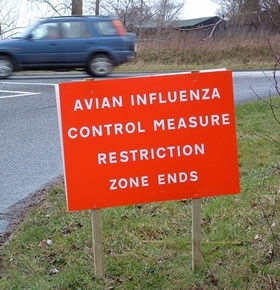
THE Game & Wildlife Conservation Trust (GWCT) would like to inform members that British authorities are increasingly concerned about the possible return of avian influenza following a number of outbreaks in continental Europe.
The risk of avian influenza in the United Kingdom currently remains low, despite confirmation of outbreaks in continental Europe.
Authorities have confirmed to the World Organisation for Animal Health (OIE) that bird flu has struck in a near 42,000-bird commercial layer flock in the Zeeland region of the Netherlands.
The strain involved is a low path type H5N2 - the virus involved in large bird flu outbreaks in the United States in 2015.
A new highly pathogenic outbreak of a H5 strain has also been reported on a farm in Bulgaria involving nearly 11,000 birds.
Culling has been carried out on both farms and restrictions have been put in place around the affected premises.
Perhaps more significant for the United Kingdom, is that highly pathogenic H5N8 - the strain that hit the UK and the rest of Europe last winter - has been found in a wild bird in Germany.
This is on a route that migratory birds take on their way to the UK.
On Wednesday (25 October), the UK government increased the bird flu risk from low to medium for wild birds in UK, but poultry flocks remain low.
Meanwhile, the government has reminded poultry keepers about biosecurity requirements, but also for seasonal poultry producers to be particularly aware and prevent direct or indirect contact with wild birds.
GWCT advises that everyone involved in managing gamebirds or attending shoots over the coming months should remain vigilant, practice high levels of biosecurity and report cases of sick or dead birds.
Notes to editors
The Game & Wildlife Conservation Trust – providing research-led conservation for a thriving countryside. The GWCT is an independent wildlife conservation charity which has carried out scientific research into Britain’s game and wildlife since the 1930s. We advise farmers and landowners on improving wildlife habitats. We employ more than 60 post-doctoral scientists and other research staff with expertise in areas such as birds, insects, mammals, farming, fish and statistics. We undertake our own research as well as projects funded by contract and grant-aid from government and private bodies.
For information, contact:
Eleanor Williams
Telephone: 07592 025476
Email: press@gwct.org.uk